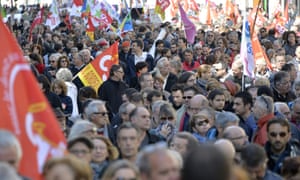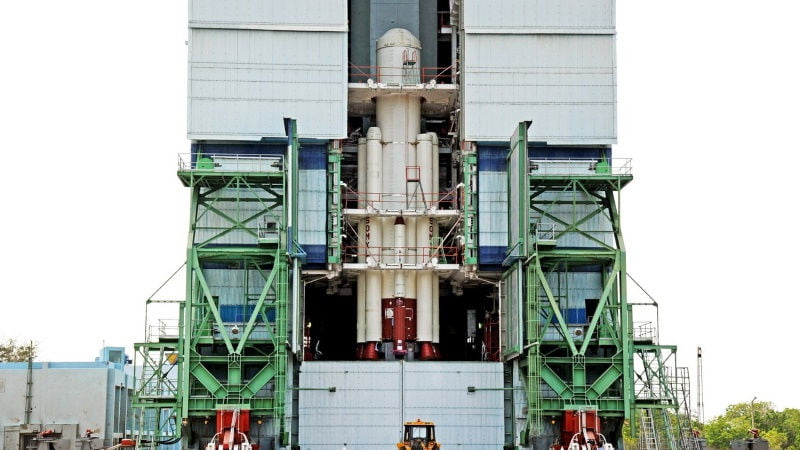Tens of thousands also protest in South Korea about similar proposed changes to workers’ rights

France is braced for violence at May Day rallies amid increasing anger about proposed employment changes, with similar fears about erosion of rights sending tens of thousands on to the streets of South Korea.
May Day protests were expected in cities across the world on Sunday, as economic crises and a rise in unemployment have fuelled anti-government sentiment.
France was on high alert after protests against planned labour changes this weekdescended into chaos, with cars set on fire and dozens of police officers being injured in Paris in clashes with protesters.
The French government hopes the changes will help reduce chronic unemployment, which is at about 10%. But critics believe they threaten hard-won workers’ rights by making it easier to lay off people in economically difficult times.
The government has already watered down the employment bill but this has failed to calm the anger among students and workers demanding it be withdrawn.
The prime minister, Manuel Valls, issued a warning on Sunday to groups of so-called casseurs (breakers) who appear on the sidelines of marches actively seeking confrontation with police, leading to violent clashes.
“We will respond with the greatest of determination to these troublemakers … the attacks and violence against security forces are unacceptable,” he said.
The labourminister, Myriam El Khomri, defended the proposed changes, saying debate on the bill should now shift to parliament where it is scheduled to be heard in two days.
“This bill is fair and necessary,” she told local media, adding that reformist unions that represent most workers were behind the changes.
In France, May Day celebrations often expose bitter divisions in the the far-right party Front National, with former leader Jean-Marie Le Pen and his daughter and party chief, Marine, holding rival rallies.
The 87-year-old criticised his estranged daughter and predicted she would be roundly beaten in presidential elections next year.
International Workers Day was started in Chicago in 1886 by a union demanding an eight-hour workday, and is now celebrated around the world.
In South Korea – which also has high youth unemployment – proposed changes to its labour laws have sparked similar anger among workers, and tens of thousands protested against the employment bill.
Labour activists say the changes being pushed by President Park Geun-hye and her conservative Saenuri party will make it easier for companies to sack workers.
“Let’s fight together against the evil bill!” activists and unionised workers chanted during a protest in front of city hall in the capital, Seoul.
About 100,000 workers joined a May Day parade in Red Square, Moscow, waving Russian flags and balloons near the Kremlin walls, police said.
The carefully choreographed spectacle harked back to Soviet times and took place amid a persisting economic crisis brought on by western sanctions over Russian involvement in Ukraine and low oil prices.
In Istanbul, security measures included 25,000 police on duty and numerous roads closed on a day that regularly sees clashes between Turkish protesters and police.
Security was especially high at the main Taksim Square, where demonstrators are expected to try to gather despite a banning order.
May Day comes at a time of particular tension in Turkey after a succession of deadly attacksblamed on jihadis and Kurdish militants.
Controversy is also growing over the presidency of Recep Tayyip Erdoğan, whom critics accuse of increasingly authoritarian rule.
Several foreign missions have warned their citizens about the risk of violence in Istanbul on 1 May. The US embassy has warned of the “potential for violent confrontation between demonstrators and security personnel”.
Last year, Turkish police used water cannon and teargas to disperse May Day protesters in Istanbul, while police and demonstrators engaged in pitched battles in some areas.
Parliament passed a controversial security bill last year that gave the police greater powers to crack down on protests.
Taksim Square has been a flashpoint for clashes on May Day since dozens of people were killed there in 1977 when modern Turkey was going through one of its most turbulent periods.

